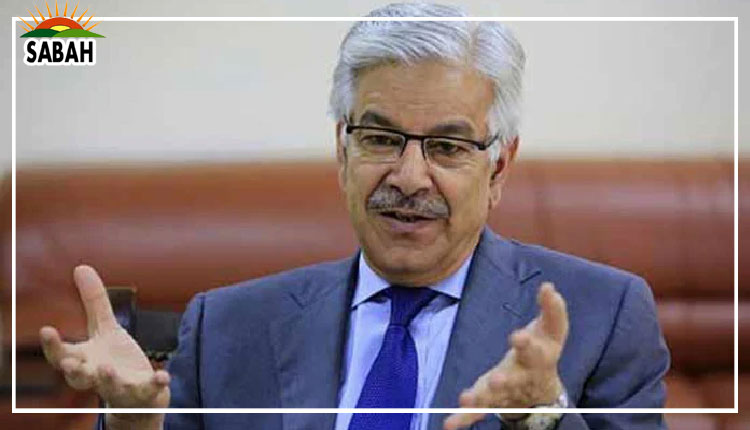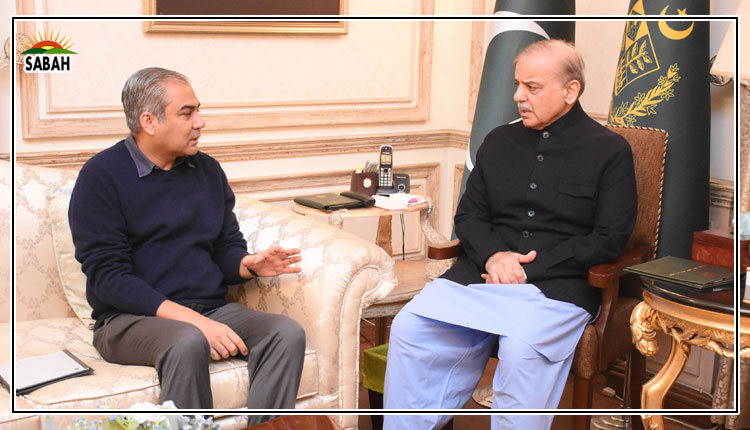Senator Sherry Rehman calls for internationally determined contributions as global accountability measure ahead of COP 29
ISLAMABAD, Oct 09 (SABAH): Senator Sherry Rehman chaired a comprehensive meeting of the Senate Standing Committee on Climate Change on Wednesday, with the agenda focusing on the progress and commitments of Pakistan’s Nationally Determined Contributions (NDCs) and review of the Pakistan Trade Control of Wild Fauna and Flora (Amendment) Bill, 2024.
The meeting was attended by committee members Senator Shahadat Awan, Senator Shahzeb Durrani, and Senator Bushra Anjum Butt, while Senator Quratulain Marri and Senator Taj Haider participated online. Representatives from the Ministry of Climate Change, Prime Minister’s Coordinator for Climate Change Romina Khurshid Alam, Deputy Commissioner Islamabad and other officials were also present.
Senator Sherry Rehman highlighted the pressing need for international cooperation for effective climate action. She remarked that Pakistan’s NDCs, set in 2021 showcase resolute commitment towards energy transition but noted that despite numerous international conferences, including the upcoming 29th Conference of Parties (COP 29), global emission levels continue to rise, while countries like Pakistan paid a heavy price, despite contributing less than 1% to those global emissions.
“The NDCs were meant to signify a reduction in emissions by all participating countries. Yet, after nearly three decades of COP conferences, instead of progress, we are witnessing a steady increase in emissions globally, putting us on a dangerous trajectory. Big emitters must be held accountable for their lapsed pledges and promises through Internationally Determined Contributions to finance small emitters’ capacities to manage responses to the accelerating climate crisis”, asserted Senator Sherry Rehman. “COP 29 is the 30th such climate conference, and even now, instead of curbing emissions, the global mean temperature is continuously rising, far exceeding the 1.5-degree Celsius limit agreed upon in Paris.”
Senator Sherry Rehman expressed concern that the global community has failed to curb emissions effectively, despite setting ambitious targets. “This continued rise in emissions means that countries like Pakistan are facing catastrophic impacts, including more frequent and severe heatwaves, floods, and erratic weather patterns. To meet our sustainability goals, including adaptation and mitigation measures, Pakistan will need USD 348 billion by 2030,”she informed the committee.
Senator Sherry Rehman unpacked that “Countries like Pakistan, which contribute less than 1% to global emissions, are on the frontline of the climate crisis. We need the global community to step up, fulfill their commitments, and support countries like ours in our journey towards a sustainable future. This issue must be raised at multilateral forums, and the big emitters must be held accountable for the promises made”.
“Global warming is intrinsically linked to emissions, yet instead of reducing them, we see financial support still being directed towards the fossil fuel industry. International financial institutions have subsidized fossil fuels with a staggering USD 7 trillion. How can we expect meaningful progress when funds are still flowing to the very industry responsible for the crisis?” she questioned.
Senator Sherry Rehman emphasized that before setting high benchmarks for energy transitions, international financing mechanisms must be put in place to support developing countries in their shift to renewable energy. “This is what we mean by a Just Energy Transition—ensuring that no country is left behind in the race to decarbonize,” she stressed. Citing Indonesia as an example, she pointed out that the country has received USD 20 million under the Just Energy Transition Partnership (JETP). She urged the international community to support Pakistan similarly as it moves towards renewable energy. “We have made significant progress with our net metering policy and have been importing large quantities of solar panels from China. One-third of our current energy capacity is now met through solar energy. But to achieve more, we need financial and technical support,” she stated.
Senator Sherry Rehman highlighted the importance of including innovative solutions like carbon credits and carbon sequestration mechanisms to enhance Pakistan’s sustainability efforts. “We need to explore all possible options, from carbon credits to sequestration, to make our energy transition successful. For instance, while other countries have set up numerous solar parks, Pakistan only has one. We need to scale up such initiatives,” she noted.
During discourse on the Pakistan Trade Control of Wild Fauna and Flora (Amendment) Bill, 2024, introduced by Senator Shahadat Awan, Senator Sherry Rehman raised significant concerns over the existing legislative framework’s ability to effectively regulate invasive alien species, pointing out that the capacity of the Wildlife Department’s Conservator is insufficient to meet the Bill’s requirements. She stressed the need to shift focus from regulating exports of potentially invasive species to imports, as assessing the environmental impact of such species in other countries is challenging. Senator Sherry Rehman highlighted several lacunae, noting that while the Bill appears cognizant and streamlined, it does not adequately address public and environmental needs within Pakistan.
Following a thorough discussion, the committee unanimously agreed to introduce “invasive” as a sub-clause, remove the term “pathogen,” and replace the word “export” with “import” to strengthen the Bill’s provisions and ensure better protection of Pakistan’s ecosystem.
Towards the conclusion of the meeting, Senator Sherry Rehman revisited a previous request regarding the water quality report for Rawal Dam. “It has been over two months since we asked for a comprehensive lab analysis. There should be a proper report detailing toxicity levels, pH, and faecal matter presence to ascertain whether the water is fit for human consumption,” she asserted. The Chairperson directed the relevant authorities to present a detailed report at the next meeting and emphasized that the committee would take strict notice if there were further delays.












